
Uri Dadush
Uri Dadush is a Non-resident fellow at Bruegel, based in Washington DC, and a Research Professor at the School of Public Policy at the University of Maryland where he teaches courses on trade policy and on macroeconomic analysis and policy. He is also a Non-Resident Fellow at the Policy Center for the New South in Rabat, Morocco and Principal of Economic Policy International LLC, providing consulting services to international organizations. He was a co-chair of the Trade, Investment and Globalization Task-Force of the T20 and Vice-Chair of the Global Agenda Council on Trade and Investment at the World Economic Forum.
He was previously Director of the International Economics Program at the Carnegie Endowment for International Peace. Prior to that he was Director of International Trade, Director of Economic Policy, and Director of the Development Prospects Group at the World Bank. Based previously in London, Brussels and Milan, he spent 15 years in the private sector, where he was President of the Economist Intelligence Unit, Group Vice President of Data Resources Inc., and a consultant with McKinsey and Co.
His books include: Trade Preferences, Foreign Aid and Self-Interest; Trade Policy in Morocco: Taking Stock and Looking Forward (with Pierre Sauve' , co-editor); WTO Accessions and Trade Multilateralism (with Chiedu Osakwe, co-editor); Juggernaut: How Emerging Markets Are Transforming Globalization (with William Shaw); Inequality in America (with Kemal Dervis and others); Currency Wars (with Vera Eidelman, co-editor); and Paradigm Lost: The Euro in Crisis. He is presently working on a book on the crisis in the world trading system.
His columns have appeared in the Financial Times, the Wall Street Journal, Foreign Affairs, Foreign Policy, Il Sole 24 Ore, Le Monde, Liberation, L’Espresso and El Pais.
He has a BA and MA in Economics from Hebrew University of Jerusalem and a PhD in Business Economics from Harvard University.
Disclaimer of external interests
Featured work
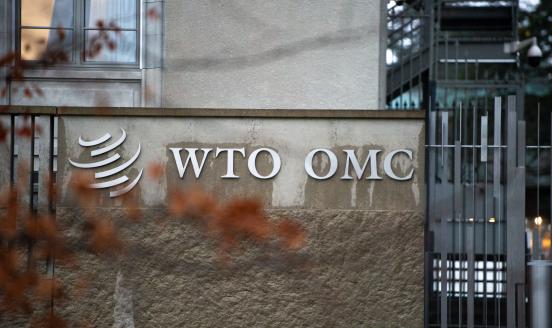
The problem with preferential trade agreements
Preferential agreements can be an alternative to a sclerotic WTO, but, if multilateral rules fail, they also risk conflict between trading blocs
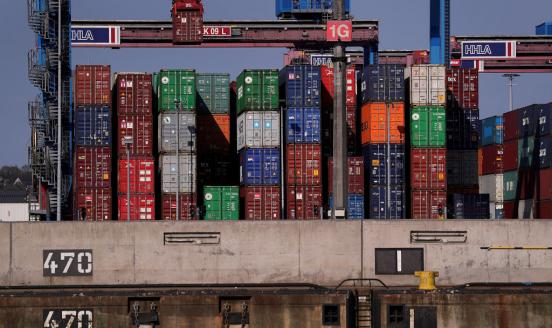
Deglobalisation and Protectionism
This paper presents a data-driven examination of whether deglobalisation has happened and whether protectionism was the cause.

Will Ukraine’s refugees go home?
The way to help Ukraine will be to assist in reconstruction and not place artificial impediments to immigration of those who have already suffered.

Bruegel Annual Meetings, 6-7 September 2022
The Annual Meetings are Bruegel's flagship event which gathers high-level speakers to discuss the economic topics that affect Europe and the world.
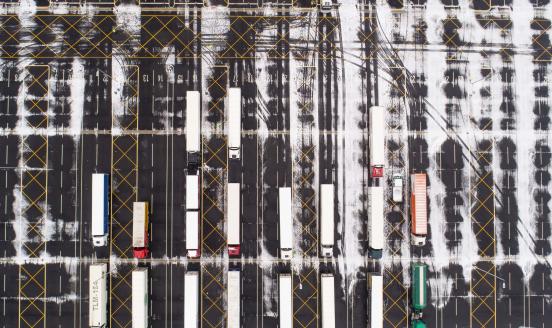
The future of global value chains and the role of the WTO
What is the future of GVCs?
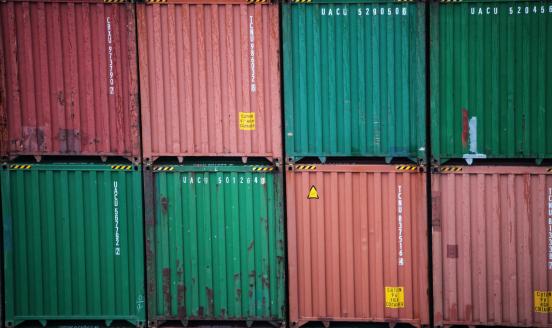
Is the post-war trading system ending?
This policy contribution assesses how the trading system has changed over the last five years

What to make of the EU-US deal on steel and aluminium?
The tariffs affected at least $7.2 billion imports of the relevant steel and aluminium products from the EU into the US in 2017.
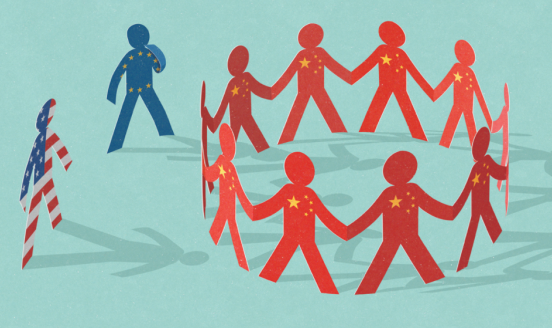
Investing in China: myths and realities
Concerns are real, but the country fares as well as peers at similar levels of development. Analysis published in fDi Intelligence.

How difficult is China's business environment for European and American companies?
This Policy Contribution has a purposefully narrow focus, ie China’s business practices and their effects on western firms.
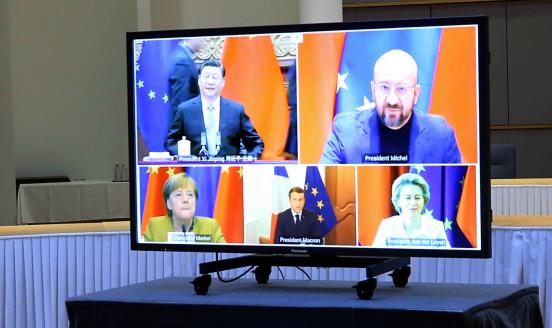
Is the European Union’s investment agreement with China underrated?
The European Union-China Comprehensive Agreement on Investment binds Chinese liberalisation of its foreign investment regulations under an internation

A matter of life and death: governments must speed up vaccination
COVID-19 vaccination in Europe and the United States is moving too slowly and is failing to prevent avoidable death and economic disruption. More must

Happy New Year?
A recovery from the COVID-19 recession is underway though the suffering is far from over, especially for the most vulnerable. Inequality is both a con
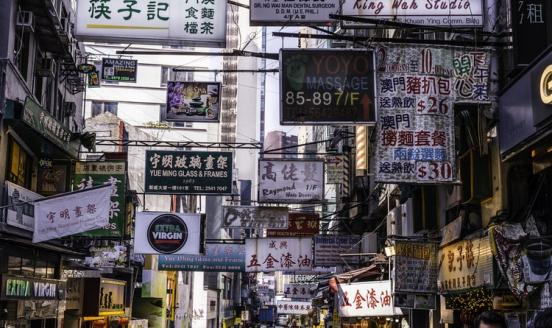
The impact of the new Asian trade mega-deal on the European Union
Although the economic implications of the Regional Comprehensive Economic Partnership (RCEP) for the EU are modest, the geopolitical and strategic imp
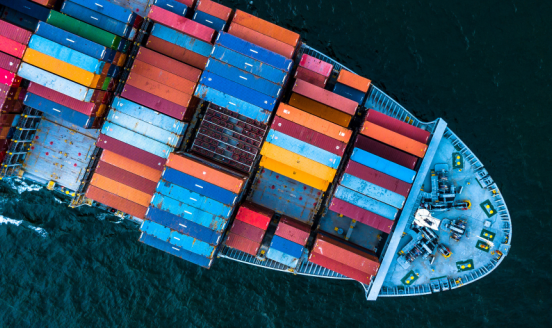
What should Europe expect from American trade policy after the election?
A Joe Biden Administration would have to decide to what extent to unpick the major United States trade policy shifts of the last four years. A quick r
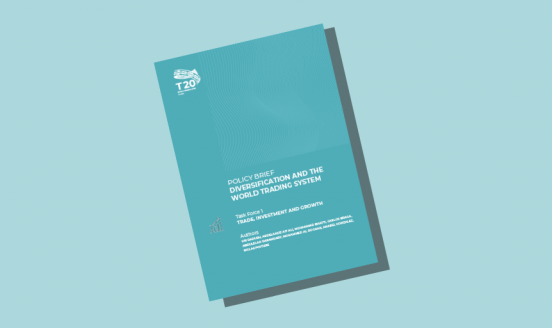
Diversification and the world trading system
Diversification is important because it is associated with economic growth and reduced volatility.

Bruegel Annual Meetings 2020 - Day 3
Third day of Bruegel Annual Meetings.
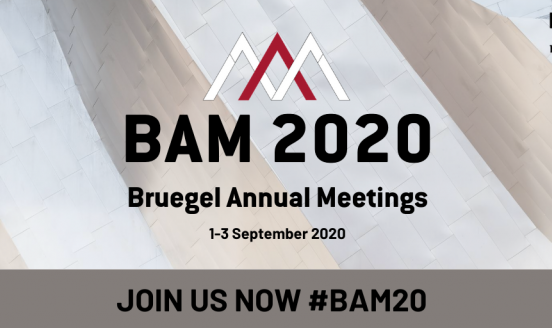
Bruegel Annual Meetings 1-3 September, 2020
Bruegel's flagship event transformed into a virtual conference for pandemic times

Can the global recovery be sustained even as the pandemic rages?
The global economy is showing signs of recovery from the economic crisis caused by COVID-19, though the spread of the coronavirus is accelerating in s
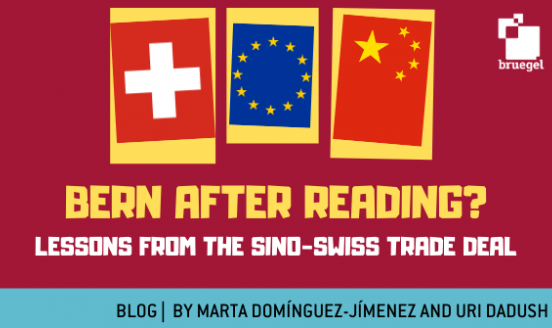
What can the EU learn from the China-Switzerland free trade agreement?
The US-China trade war has placed EU trade relations with China under the microscope. Should the EU challenge China’s trade practices and employ trade
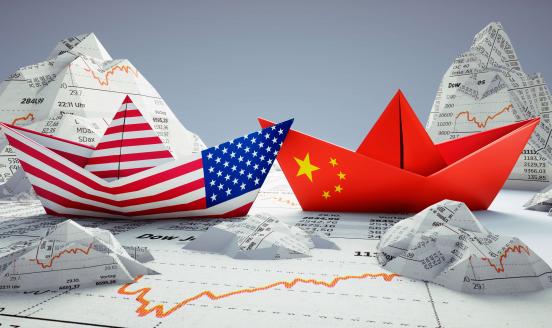
Lessons from the China-US trade truce
The tentatively agreed deal between China and the United States temporarily stops a dangerous dynamic, yet it falls far short of the negotiating objec
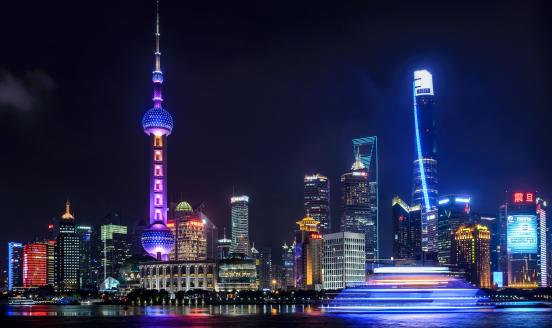
Manufacturing employment, international trade, and China
The decline in manufacturing employment is often seen as a major reason for rising inequality, social tensions, and the slump of entire communities.
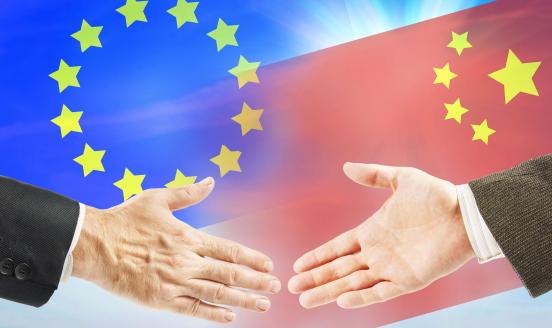
The state of China-European Union economic relations
More can be done to capture the untapped trade and investment opportunities that exist between China and the EU. China’s size and dynamism, and its re

A Fear of Regime Change is Slowing the Global Economy
Why did such a sharp and steady slowdown occur against a background of loose monetary policy, supportive fiscal policy, low inflation and absence of e

Implications of the Japan – United States Mini Trade Agreement
Details of the US-Japan mini-trade deal are lacking but the agreements’ direct impact on the US and Japanese economies is likely to be minuscule. The

The European Union-Mercosur Free Trade Agreement: Prospects and risks
After nearly 20 years of on-off negotiations, the European Union and Mercosur – a customs union covering Argentina, Brazil, Paraguay and Uruguay – in
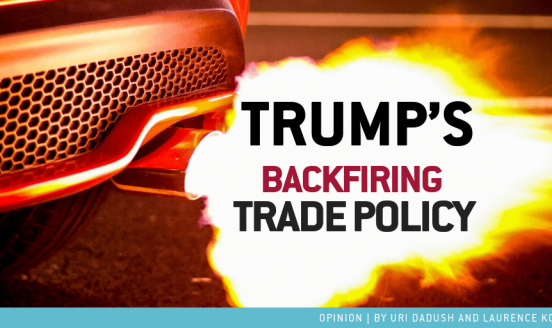
Trump's Backfiring Trade Policy
President Trump’s radical trade policy continues, as do trade disputes with China. The president promised to sign far better trade deals, ensure fair

What is in store for the EU’s trade relationship with the US ?
If faced with a resurgent President Trump after the next US election, the EU will have some difficult decisions to make as it is compelled to enter a

Implications of the escalating China-US trade dispute
If allowed to escalate, the trade dispute between China and the United States will significantly increase the likelihood of a global protectionist sur

Life after the multilateral trading system
Considering a world absent a multilateral trading system is not to promote such an outcome, but to encourage all to prepare for the worst and instil g

Can the emerging economic powers govern the globe?
Can a G7 dominated by developing nations provide the impulse to global governance as did the old G7? The answer is no.
The trade crisis: good and bad scenarios and the EU's response
What role will the EU play in the resolution of the global trade crisis?

The European Union’s response to the trade crisis
The global trading system is under attack on various fronts. In this Policy Contribution, the authors examine the root causes of the current problems,
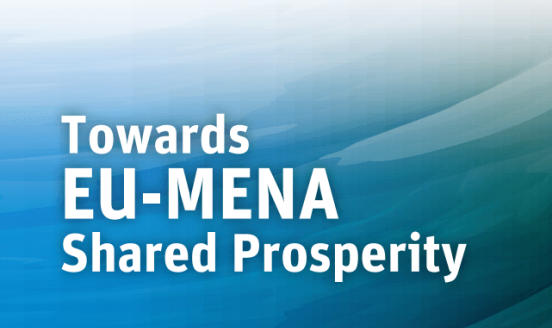
Towards EU-MENA shared prosperity
This joint publication collects the papers produced as part of the third collaboration between Bruegel and the Policy Center for the New South (PCNS).
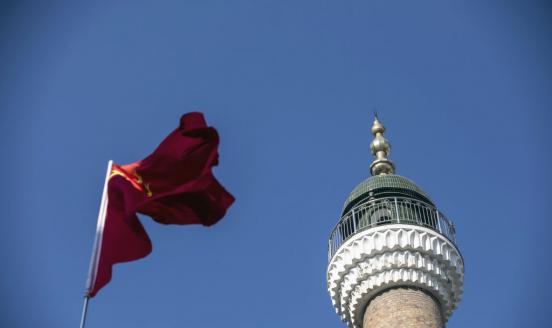
The world’s response to China’s Belt and Road Initiative
This event will look at the Chinese Belt and Road Initiative as well as the response from the rest of the world.
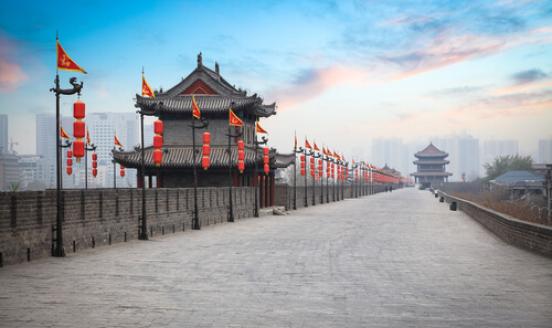
The Belt and Road turns five
Five years after its launch, Michael Baltensperger and Uri Dadush reflect on China’s Belt and Road Initiative. The plan to revive ancient trade routes

Youth unemployment: Common problem, different solutions?
Youth unemployment is a major obstacle to the Middle East and North Africa (MENA) region’s human and economic development. In this blog post, Uri Dadu
Buenos Aires summit is a good place to start fighting back against destructive unilateralism
Ten years after the G20 proved its effectiveness in dealing with the global financial crisis, it needs to step up its efforts to overcome a political

Assessing the European Union’s North Africa trade agreements
In this Policy Contribution, the authors provide an economic assessment of the trade agreements between the EU and North Africa. They argue that the c

Policy responses for an EU-MENA shared future
In the third edition of the "Platform for Advanced & Emerging Economies Policy Dialogue" we will discuss trade flows and trade policy between Europe a

U.S. steel and aluminium tariffs: how should the EU respond?
President Trump and his trade team are set on a path of protectionism and economic nationalism. Trump’s intended measure raises four issues for the EU

Moroccan job market issues, and labour trends in the Middle East and North Africa
Morocco is an interesting case of structural labour market disequilibrium despite respectable growth, and illustrates the issues facing the region’s o

The economic effects of refugee return and policy implications
This paper looks at the question of returning asylum seekers and refugees from the economic perspective in the advanced countries that receive refugee
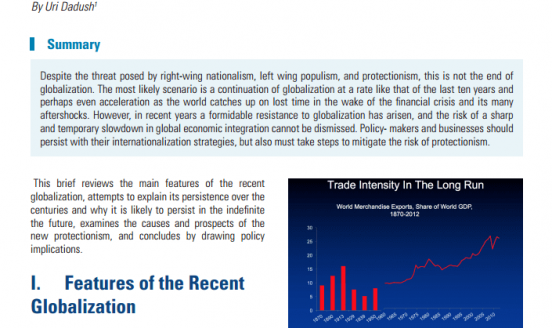
The future of globalization
This brief reviews the main features of the recent globalization, attempts to explain its persistence over the centuries and why it is likely to persi
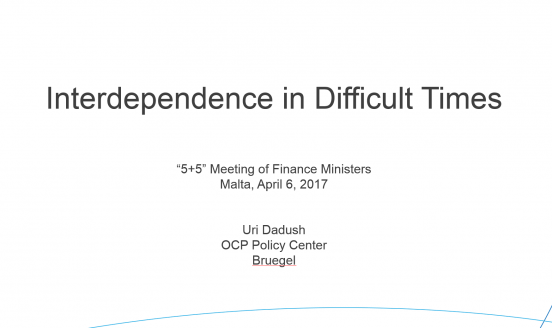
Interdependence in difficult times
This presentation was delivered in Malta at the Western Mediterranean Forum, commonly referred to as 5+5 Dialogue, was officially launched in Rome in

Europe’s role in North Africa: development, investment and migration
The authors of this Policy Contribution propose five ways in which EU policymakers can contribute to development in North Africa and build partnership
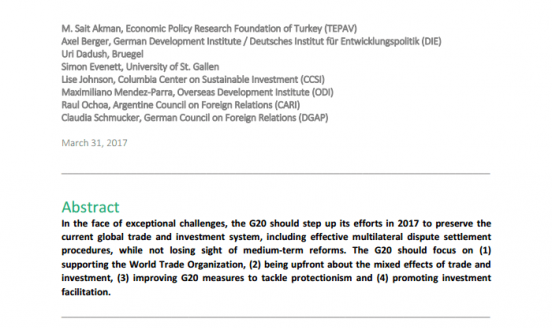
Key policy options for the G20 in 2017 to support an open and inclusive trade and investment system
In the face of exceptional challenges, the G20 should step up its efforts in 2017 to preserve the current global trade and investment system, includin
NAFTA in play: How President Trump could reshape trade in North America
How will the story of NAFTA unfold under the Trump presidency? Uri Dadush examines three possible scenarios and provides an overview of the policy imp
The border adjustment tax: a dangerous proposal
Reflecting the fact that the United States imports more than it exports, border adjustment tax is considered by its proponents as an essential part of
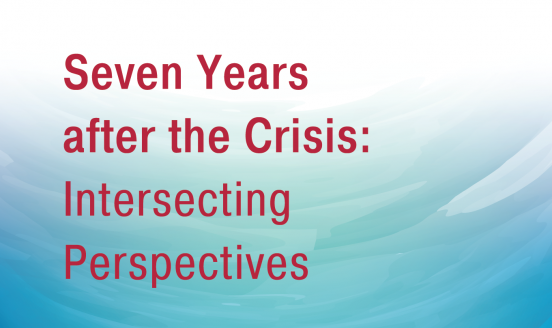
Seven years after the crisis: intersecting perspectives
This joint publication brings together the papers produced as part of the first collaboration between Bruegel and the OCP Policy Center. Within the th
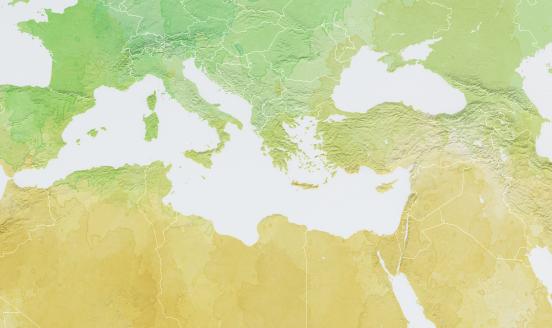
Euro-Mediterranean energy talks
The energy landscape of the Southern and Eastern Mediterranean is inefficient and unsustainable. Yet there is much potential for cooperation. How coul
Seven Years after the Crisis: Intersecting Perspectives
First edition of the annual "Platform for Advanced & Emerging Economies Policy Dialogue"